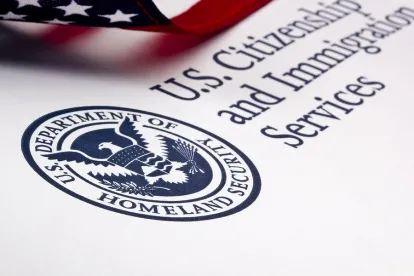Certain news reports have hinted that pursuant to President Trump’s “Buy America, Hire America” Executive Order of April, 2017, the Trump Administration is considering changes to the H Visa Program. The changes may cease one avenue for on-going H-1B employment authorization of certain Indian and Chinese nationals who have been lawfully in the U.S. waiting in-line for an immigrant visa to become available to them as well as cessation of employment authorization of certain H-4 spouses.
The rumored changes to the H-1B program could impact the hundreds of thousands of H-1B workers and their families, many of whom have U.S. citizen children. Many of these workers have been waiting in line for a green card for over a decade. The rumored changes have already received strong condemnation from many in Congress who say affected H-1B employees make critical contributions to the U.S. economy, own homes, pay taxes and are an integral part of many STEM U.S. businesses.
To date, the Department of Homeland Security (“DHS”) has not issued proposed regulations or provided any formal announcement regarding its intention to change its long standing practices under AC21. Any proposed changes to AC21 would likely garner numerous legal challenges by the immigration bar and STEM industry groups.
Indian and Chinese nationals waiting for Immigrant Visas
Under U.S. law, foreign nationals can only hold H-1B status for a limited period of six years. Problematic in this is that Indian and Chinese nationals are unable to obtain U.S. Resident Alien or green card status prior to reaching their six year H-1B cap of employment eligibility through employer sponsored applications. This is because their “priority dates” or places in line for numerically limited immigrant visas or green cards are significantly backlogged based on demand for immigrant visas or green cards from their fellow nationals. Congress ameliorated this problem by passing the American Competitiveness in the Twenty-First Century Act, commonly known as “AC21” permitting employers to continue to employ H-1B employees beyond their six year period of H-1B eligibility so long as certain conditions were met.
There are two provisions under AC21 which permit extensions of H-1B status beyond six years: sections 104(c) and 106(a) of the Act. Under Section 104(c), a three-year extension of H-1B status is possible where an H-1B employee has an approved I-140, Employment-Based Immigration Visa Petition (“I-140”). The H-1B employee must continue to be eligible to be granted green card status but for the per country limits on immigrant visa or green card availability.
The second provision under Section 106(a) and (b) allows an extension of H-1B status in one-year increments. To benefit under Section 106(a) and (b), an employer must have filed an Alien Labor Certification on behalf of the H-1B employee at least 365 days or more prior to reaching his or her 6 year cap of H-1B eligibility, and it also applies if more than 365 days have elapsed since the filing of an I-140 petition.
Three-Year Extensions of H-1B Status
Unfortunately, there are credible reports that the Administration is considering ending section 104(c) of AC21. It is believed that the Administration is eyeing Section 104(c) because the language in the statute appears to give discretion to the USCIS to decide whether or not to grant the three year extension. Many immigration attorneys believe that this section of AC21 is most at risk because of the discretionary language in the statue.
One-Year Extensions of H-1B Status
Under the same U.S. law, one-year extensions of H-1B are permitted in many circumstances under section 106(a). This part of AC21 directs that the one-year extensions “shall” be granted. It is not clear whether the Trump Administration plans on attempting changes to USCIS regulations governing the one-year extension provision. Many practitioners believe that the Trump Administration would be less successful at changing the one-year extension of stay provision because the statute directs the agency to approve the H-1B extensions under this provision by using the word “shall.”
Can the Trump Administration Change H-1B Law?
Only Congress can enact laws, but it directs the executive branch to promulgate regulations to carry out the tenets of U.S. statutes. Under the Administrative Procedures Act (“APA”), all federal agencies, including the DHS/USCIS must follow certain guidelines when enacting, changing, or rescinding their own regulatory schemes. In most cases, a federal agency must publish a public notice of proposed regulations or regulatory changes and it must permit time for a public comment period in order to enact, change, or rescind regulations. Under the APA, the USCIS cannot change the H-1B regulations without following APA procedures which generally requires several months to complete. A policy change prior to formal rule-making would be subject to litigation. Moreover, a regulatory change which exceeds the authority granted to the agency by Congress would be subject to legal challenge, particularly if the Administration attempts to end provisions under Section 106(a) and (b) permitting one-year extensions of stay.
Elimination of the H-4 Spouse Employment Authorization
In 2015, after following proper procedures as dictated by the APA requiring a public notice and a comment period prior to its implementing new regulations, the Obama Administration implemented a rule which permitted certain spouses of H-1B employees who are in H-4 status to obtain employment authorization. The rationale for this regulatory change was to retain highly-skilled H-1B employees who were stuck in the immigrant visa quota backlog system and who felt pressure to depart the U.S. because their spouses could not work for a decade. The rule provides that if the H-1B employee has obtained an approved I-140 through an employer-sponsored green card application or the H-4’s spouse has been granted an extension of stay under section 106(a) and (b), then the spouse is permitted to apply for employment authorization to obtain an Employment Authorization Document (“EAD”).
The Trump Administration has published its opposition to this rule, and has made H-4 spousal employment authorization one of its regulatory agenda items. The Trump Administration believes that H-4 spousal employees undermine the U.S. workforce. As of this date, no change has been announced, however, the DHS is engaging in rule-making under the APA and it is expected that its regulations will end the employment authorization provisions for H-4 spouses.




 />i
/>i

